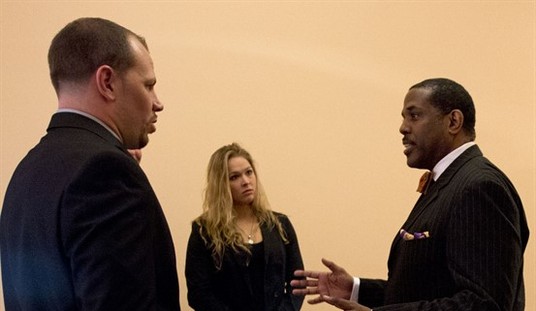Israel went to the polls on Monday. By Tuesday morning, as vote-counting proceeded, it appeared all but certain that Prime Minister Benjamin Netanyahu, his Likud Party, and his right-wing bloc had scored a dramatic comeback victory.
First it will help to recap.
Netanyahu was prime minister from 1996 to 1999, and again consecutively from 2009 to 2019, winning elections in 2009, 2013, and 2015. When he ran again in April 2019, it seemed he’d won again handily as the right-wing bloc took 65 seats out of Israel’s 120-member Knesset (to win you need 61).
But something happened on the way to coalition-forming. Avigdor Liberman, head of a secular-hawkish faction, demanded that Netanyahu stop making concessions to two ultra-religious parties that had been part of his coalition since 2015.
It was a demand Netanyahu had to refuse, since his ultra-religious coalition parties held far more seats than Liberman’s faction, which had won all of five seats. But when Liberman pulled out of the coalition, it was left with 60 seats—one short of the 61-seat minimum. Israel has been in electoral limbo ever since.
Especially because in the September 2019 elections, Netanyahu’s right-wing bloc—sans Lieberman’s faction—slipped even further to 55 seats. Netanyahu’s main challenger, former chief of staff Benny Gantz, led his centrist Blue and White party to an impressive performance—but his bloc, like Netanyahu’s, fell way short of 61 mandates. (If you’re wondering about the arithmetic, the remaining mandates went to the Joint List, an Israeli Arab party that’s hostile to Israel as a Jewish state and not grist for anyone’s coalition.)
So the result was ongoing deadlock—leading, after another half-year, to the March 2 elections.
This time Netanyahu, showing superhuman energy for a 70-year-old man who had spent 11 years as prime minister of Israel—not the easiest job—and moreover had corruption charges and a court trial hanging over his head, focused his campaign on loyalists of his Likud party who in September, whether out of tiredness or cynicism, had stayed home instead of voting. He tore around the country, telling them: “Go vote!” It seems to have worked.
According to still-incomplete results reported Tuesday morning, Likud had risen from 32 seats in September 2019 to 35-36, while Blue and White had lost some number of seats—how many was still unclear—since winning 33 in September. The only remaining question: had Netanyahu’s bloc made it to 61 seats? It seemed to be hovering at about 59-60.
Yet, 61 seats or no, Netanyahu was loudly proclaiming victory and his camp was celebrating. But if 60 seats weren’t enough in the April 2019 elections, why would 60—or 59—be enough now?
The answer is probably that the right-wing bloc will be able to siphon off a few seats from the losing parties to get to 61—or higher—if it needs to. They may already know who the people are. The difference between April 2019 and March 2020 is that this time, if no coalition gets formed, Israel will have to go to fourth elections after still another half-year. Most likely some centrist or right-leaning parliamentarians in the losing parties are saying “Enough already” and are prepared to jump ship.
If, then, one can tentatively predict at this point that Netanyahu has won and will form the next government, what does it all mean?
First, it means that, instead of the Netanyahu-led caretaker government that has been at the helm since April 2019, Israel will have a real, fully functioning government that can start to address some urgent domestic issues. Those include the high costs of housing, food, and other commodities; overcrowded, understaffed hospitals; an underperforming educational system; and a growing budget deficit.
Some of those problems have plagued Israel for a long time and there is no guarantee a new government can tackle them successfully. But it can get to work on them—and since its beginnings in 1948, the state of Israel has been on a distinctly upward trajectory.
Second, with Israel accepting President Trump’s “deal of the century” peace plan and the Palestinian side roundly rejecting it, Netanyahu may start implementing parts of the plan unilaterally—which would mean, at this point, formally annexing the Jordan Valley and possibly also the Israeli West Bank communities. There are rumors, though, of Jordan’s King Abdullah demanding that Netanyahu not annex the Jordan Valley for fear of it sparking unrest in his fragile kingdom. Only time will tell.
Third, with Netanyahu continuing to serve as prime minister, and with his trial on corruption charges scheduled to start on March 17, his political opponents will make frantic appeals to Israel’s Supreme Court to force him to step down. Israeli law allows an indicted prime minister to keep serving unless and until convicted. Israel’s Supreme Court, however, arrogates to itself the right to rule not only on quasi-constitutional matters (Israel has no constitution but has Basic Laws) but on almost any issue it chooses. A bitter fight between the legislative and judicial branches could be in the offing.
And fourth, the right wing has again proved its dominance in Israel. Most voters admire Netanyahu’s talents and boundless energy; appreciate his economic, diplomatic, and security achievements; and endorse his free-market, moderately hawkish outlook. Gantz, his main challenger over the past year, tried hard to portray himself, too, as a security realist not much different from Netanyahu in that regard, but his willingness to partner with a small far-left party seemed to give the lie to that image.
With Netanyahu still at the helm—pending a possible Supreme Court challenge—the coming chapters promise to be as interesting as the preceding ones, if not more.








Join the conversation as a VIP Member